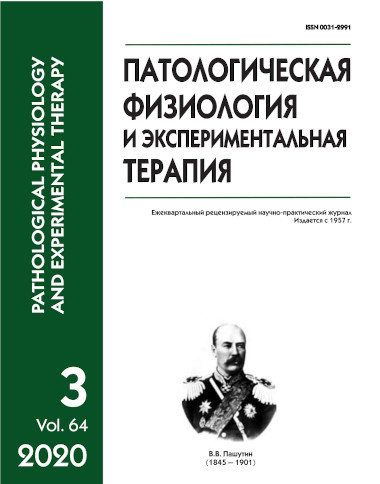The pathogenic role of IL10 gene polymorhisms in type 1 diabetes mellitus
Abstract
Type 1 diabetes mellitus (T1DM) is a multifactorial disease of an autoimmune origin. An important factor in the pathogenesis of T1DM is genetic predisposition characterized by the presence of functional single-nucleotide polymorphisms (SNPs) in the cytokine genes contributing to inflammation. Long-standing, chronic inflammation is considered to result in irreversible destruction of all pancreatic b-cells and may be due to the presence of functional polymorphic markers in genes of inflammation antagonists, such as the interleukin 10 (IL10) gene. Aim. The aim of this study was to determine the frequency of allelic variants in a number of IL10 gene polymorphic markers in residents of Moscow and the Moscow Region with T1DM. Methods. The study includes 366 patients with T1DM with different manifestations and a median duration of 41+5 years and 526 healthy individuals. The groups were gender- and age-matched. Genotypes of the rs1800896, rs1800872, and rs3024505 polymorphic markers of the IL10 gene were determined with real-time PCR on a Real-Time CFX96 Touch amplifier (Bio-Rad, USA) with a qPCRmix-HS ready-mixed PCR kit (Eurogen, Russia) and unique primers and probes. Results. The rs1800896 polymorphic marker of the IL10 gene statistically significantly correlated with increased risk of T1DM (χ2=15.52, OR=1.48, CI95%=1.23-1.79, р=0.0004). Conclusion. The study results complement the information about T1DM mechanisms of origin and pathogenesis. Implementation in practice of the methods for analyzing polymorphic variants of the IL10 gene will allow revealing a predisposition to this disease and/or its progression in patients with autoimmune diseases or in people at risk.






